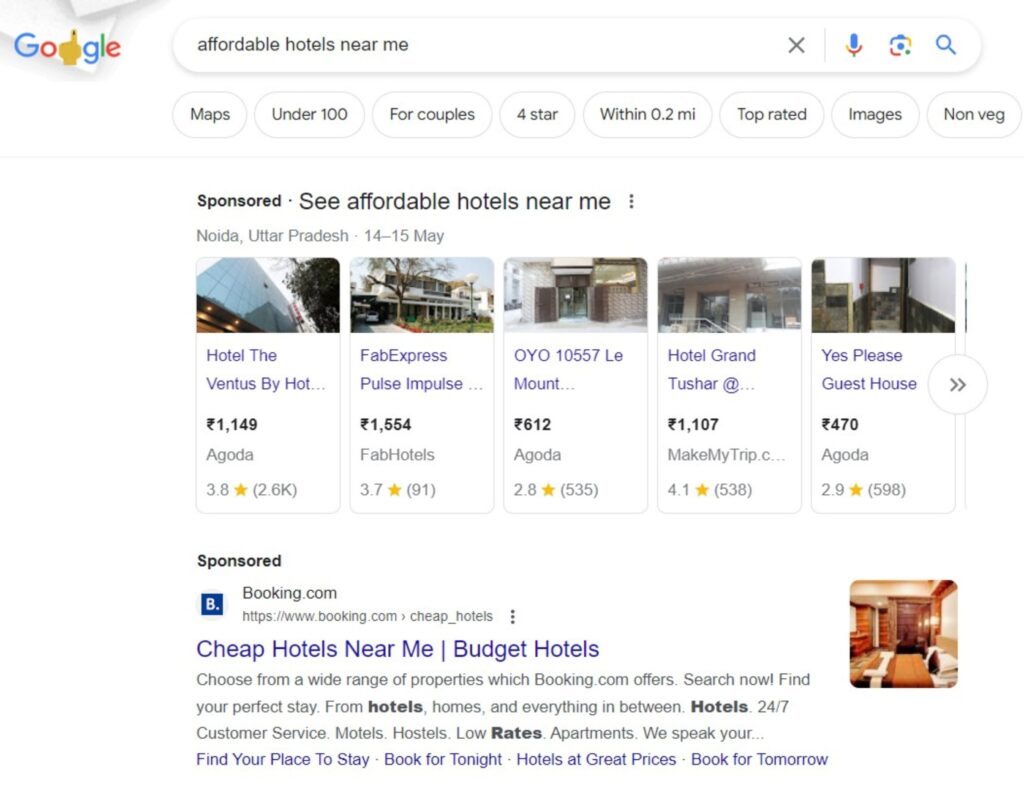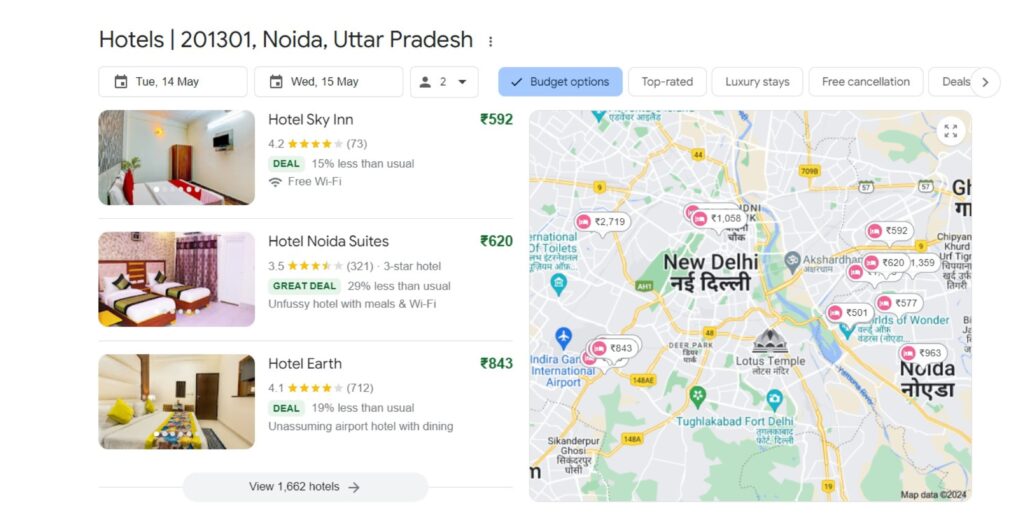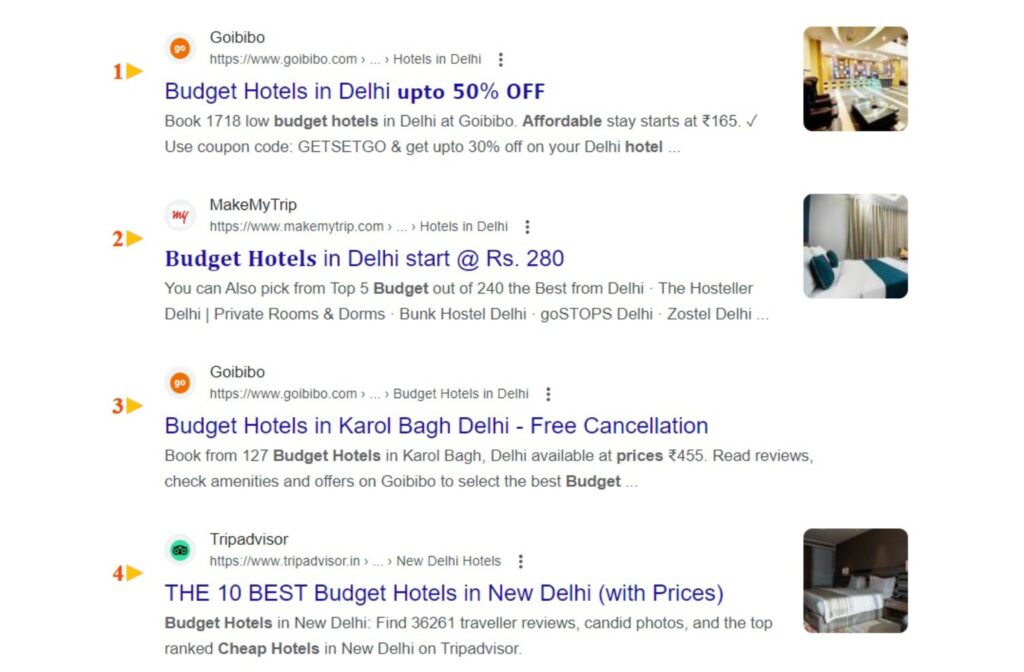We’re living in a digital age where “digital marketing” has become synonymous with the core marketing itself, making it an indispensable requirement for business growth. The world of digital marketing offers a wide range of platforms, allowing you to promote your business organically and through paid advertising.
Starting a new business often means working with a tight budget, and carefully considering every investment.So, businesses must figure out which platform best suits their goals and what steps to take.
In this blog, we’ll break down the differences between SEO and Google Ads, the two main pillars of digital marketing.
Let’s dive in and explore the differences between organic (SEO) and paid advertising (Google ads) and which strategy is the right fit for your business.
What is SEO?
Search Engine Optimisation, or SEO is the cornerstone of holistic marketing practices. It is the process of optimizing your website to boost its visibility on the SERPS (search engine result pages ) and attract potential consumers to achieve primary business goals.
The process makes use of several strategies, including on-page optimization, technical optimization, keyword research, link building, and quality content creation to rank higher in search engines. The ultimate aim of SEO is to improve organic website traffic and generate leads for enhanced business growth.
According to research, 68% of online experiences begin with a search engine and SEO brings more than 1000% of traffic to your doorstep compared to organic social media.
What are Google Ads?
As the name suggests, Google Ads is an advertising platform to create ads online to promote your business, sell your product and services, and increase traffic to your website. With Google Ads, you bid on specific keywords related to your business and pay each time someone clicks on your ad displayed at the top of search results.
Since 92.26% of global searches take place on Google, Google Ads is a preferred choice by over 3 in 5 businesses globally. This is not all, the same research states that 63% of people have clicked on Google Ads, highlighting their effectiveness in attracting immediate attention.
Where do SEO and Google Ads listings appear on search engines?
When you visit Google’s search page, you’ll typically find a search query box where you can input keywords.
Let’ s enter the keyword ‘affordable hotels near me’ on the Google search engine and press the ‘Enter’ key. Here’s the outcome.
In the results, you’ll find three main sections: sponsored listings (Google Ads), Google Maps, which includes your map listing, and approximately ten website listings generated through SEO efforts.

So, if you see the screenshot given above, the first result is that of Booking.com which is marked as Sponsored indicating that it is a Google Ad.
On the same page, if we scroll down, we can see map listings as follows:

If we further scroll down, we can see various results ranked on the basis of SEO efforts as follows:

SEO vs Google Ads
Though both SEO and Google Ads share common objectives, they are fundamentally distinct from each other. While SEO is a long-term strategy that helps you build a loyal audience, Google Ads can help in generating quick traffic.
Here are 6 of the major differences between SEO and Google ads strategies:
| Feature | SEO | Google Ads |
|---|---|---|
| Time | Results take a longer time | Google Ads yield quick results |
| Traffic | Generates regular traffic | Traffic is generated for the campaign duration only |
| Cost for clicking | No cost per click | You pay for every click |
| Placement | SEO helps in placement in search results, Google images, Google maps | Ads can be placed in search engines and Google-partnered websites also |
| Duration | Ideal for long-term and sustainable marketing goals | Ideal for short-term results |
| Keywords | Keywords horizon is paced up gradually month over month | No limit on the number of keywords from the very beginning |
Do Google Ads help with SEO?
Now that we have established how useful both SEO and Google Ads are in their ways, it is fair to understand that when used simultaneously, Google Ads can help with SEO rankings.
By strategically integrating Google Ads with SEO, you can effectively enhance your website’s visibility and generate paid traffic, particularly when your Search Engine Results are not on page 1.
Additionally, Google Ads can help brands test consumer responses to certain keywords. They can run ads on proposed keywords they are planning to use and track customers who click on Google Ads to see the response on their landing page. Keywords that generate more traffic as well as conversions can then be considered a higher priority and used strategically in SEO.
How can SEO help with Google Ads?
Similarly, keywords from SEO activities can be used to tap into the right opportunity for Google Ads. Finding keywords with higher search rates means there is also a higher competition to climb the Search Engine rankings. This makes them an ideal candidate for Google Ads.
As a brand, understanding the key differences and benefits of Google Ads and SEO can help in the right digital strategy and increase web presence for long-term success.
Closing Thoughts
Whether you’re devising a plan for a burgeoning startup or managing an already established business, your overarching objective will shape the trajectory of your digital marketing strategy. Key factors such as budget considerations, target audience definition, and campaign duration are pivotal in this process.
Should you seek proficiency in crafting a tailored digital marketing strategy, look no further than Growth Accelerators. We specialize in developing comprehensive strategies that seamlessly integrate various platforms. As we guide our clients towards organic success through avenues like SEO, we concurrently assist in optimizing and reducing their paid advertising expenditure.
At Growth Accelerators, we are eager to offer our expertise, years of experience, and the right tools to ensure the profitability of your digital marketing endeavors. Feel free to reach out to us, and let’s collaboratively propel your digital marketing campaign towards success.
Want to Discuss Your Requirement?




